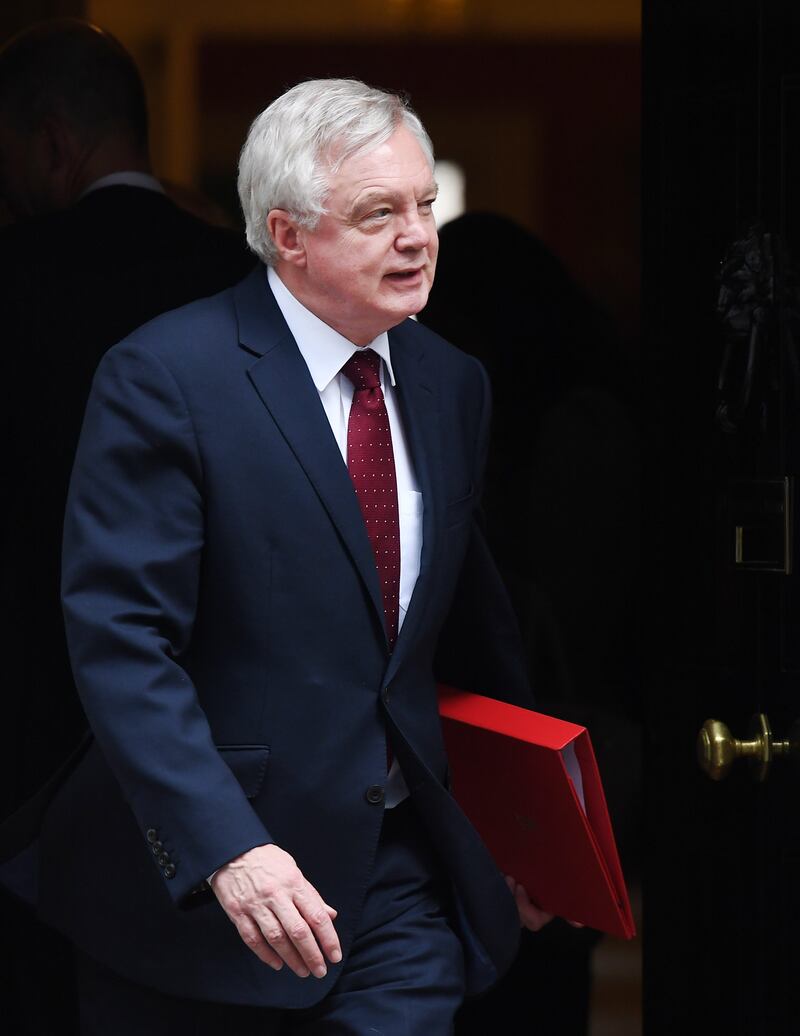The UK signaled it is preparing to compromise in its stand-off with the European Union over the Brexit bill, with new talks scheduled next week in an effort to break the deadlock.
The deal on the divorce terms will probably be better for the remaining 27 EU countries than for Britain on the financial settlement, Brexit secretary David Davis said on Tuesday. The first opportunity for negotiations to resume will be November 9 for a two-day session, according to a joint statement by the UK government and the European Commission.
“The withdrawal agreement, on balance, will probably favour the [European] union in terms of things like money and so on,” Davis told lawmakers in London. “Whereas the future relationship will favour both sides and will be important to both of us.”
For Britain, the question is urgent. May’s team wants to start discussing the future trading relationship and a two-year transition phase before the end of the year but must first satisfy the EU that the UK will pay what the bloc thinks it owes when it leaves. Davis’s comments are significant because negotiations have stalled in a disagreement over how much the UK should agree to pay.
UK Prime Minister Theresa May’s government wanted to resume talks this week but the EU could not fit a new round of talks into its schedule, Davis said. “We want to strategically accelerate the process,” he told the House of Lords EU committee. “We are not holding up the process.”
______________
Read more:
[ Busy EU may prove a boon for UK's Brexit hopes ]
[ Brexit transition deal needed ‘urgently’, business leaders say ]
______________
Davis’s comments to lawmakers on Tuesday came after the EU’s chief Brexit negotiator, Michel Barnier, said he’s ready to step up the pace as the window of opportunity for trade talks this year closes.
“I’m ready to speed up negotiations,” Barnier told reporters in the Slovak capital Bratislava on Tuesday. “We have proposed three dates, three weeks of new rounds of negotiations. In the next few hours or days, we’re working with the British delegation to find the right dates.”
Almost two weeks after German Chancellor Angela Merkel’s warm words at an October summit, concern was mounting that no date had been fixed for policy negotiations to resume, with confusion on both sides as to where the other stands and contingency planning well underway.
In London, the focus of Cabinet discussions on Tuesday was on the planning for leaving rather than getting a deal from smooth separation. The government said that almost 3,000 new civil-servant jobs have been created in support of Brexit, with plans to recruit as many as 5,000 new staff next year. There are 400,000 civil servants in total.
The EU is puzzled by the UK’s approach in the negotiations, according to a senior official from a core European government. The UK has brought no new elements to the table that would allow to settle the separation bill, the official said, asking not to be named, in line with policy.
Davis has proposed moving the talks away from the current pattern of four-day sessions held once a month in Brussels. The British side has also engaged in some shuttle diplomacy since the summit, with both Davis and Foreign Secretary Boris Johnson visiting Paris last week.
Only when European leaders such as Germany’s Merkel agree that the UK and EU have made “sufficient progress” on the divorce terms will they allow talks to move on to post-Brexit trade. Prime Minister Theresa May’s next chance to win this approval is at the EU summit on December 14.
Even though the EU welcomed May’s Florence speech in September, in which the British premier promised to honour the U.K’s liabilities stemming from its membership in the bloc, the EU wants the commitments spelt out in detail in a binding document, the European official said.
The British government has so far been resisting such calls, insisting instead that the exact methodology for calculating the bill can only be agreed once the future trade relationship is also discussed and agreed.
Apart from the exit bill, the EU says that it still needs more clarifications from the UK on the role of the European Court of Justice in guaranteeing the rights of citizens stemming from the withdrawal agreement, and it still waits for concrete proposals from London on how to avoid a hard border in Ireland.






